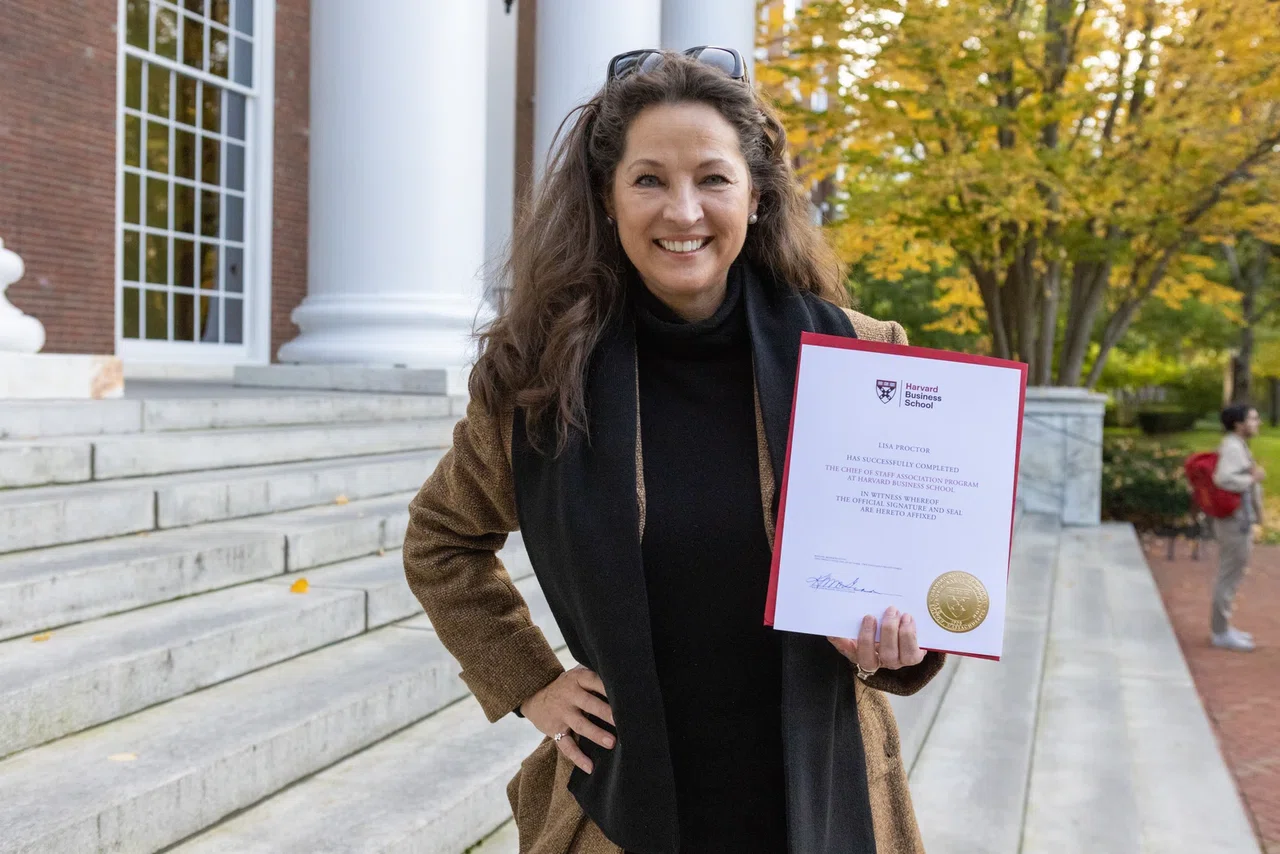
Close
result
The Power in Personal Influence

Underpinning the formal learning of our executive education programmes is a constant conversation between chiefs of staff in which they share challenges and recognise similarities in their individual roles. The programmes hold up a mirror to different dimensions of the chief of staff job and allow participants both to increase their confidence in what they are doing and discover new ways to increase their effectiveness.
One of the most obvious changes to have occurred since our first executive education programme (in Oxford) is the reduction in time spent talking about the definition of the role. While ‘what is a chief of staff?’ and ‘what does a chief of staff do?’ still rank high in chief-of-staff-related Google searches, amongst actual chiefs of staff – at least those in the Chief of Staff Association – it feels as though those questions have long been answered. Early programmes were full of different analogies to describe how participants saw themselves (an hourglass, a Swiss army knife, etc.), but this programme yielded only one: ‘the bartender’. The image, however, is a potent one, encapsulating the connection between the discreet leadership of the chief of staff and one of their principal sources of power, their personal influence. As they quietly fulfil their operational responsibilities with ease and skill, they are the single person that everybody knows and feels that they can talk to. They keep confidences, smooth ruffled feathers, dispense wisdom, and, crucially, do not stand on hierarchy. This is typically what enables the chief of staff, more than any other organisational leader, to get ‘buy-in’, whether for change, a new project, or a crisis response. Instead of leading from the front, their instinctive approach is, ‘How are we going to solve this problem together?’
‘I see myself as a broker of information.’
As a chief of staff I juggle lots of balls. I see myself as a conduit between the Board of Education, my principal and the community. I ensure that that all of those pieces work well together and that, for example, the Board gets the information that they need so that they can respond to the community in a timely manner and effectively, and that the Superintendent gets the information that he needs so that he can respond to the Board appropriately. And then I also juggle information in terms of the staff in the school district to make sure that they have the information that they need to get to the Board, to the community, to school leaders. So a lot of times I see myself as a broker of information to various stakeholders throughout this organisation. And many times I have to go dig for information that I need, and I have to do it very quickly and it has to be the right information at the right time in order for things to keep in place.
Deborah Staten, Deputy Chief of Staff, Denver Public Schools

'Being at Harvard really stretched my thinking about what a chief of staff is.'
Many chiefs of staff are time-poor. It’s a common career hazard. A chief’s inner drive for excellence, loyalty to the team members and mission, along with the work volume often perpetuates an over-committed schedule. Be it necessity or passion, our days are long. The cost of being time poor and committed can be a lack of our own meaningful and sustained professional development.
Beyond the noise and distractions, a growth mindset can flourish when coupled with quality content and meaningful engagement. For time poor chiefs, this chemistry is desirable and rare. All the more motivation to optimize it.
The Chief of Staff Association programme at Harvard Business School provided two fantastic opportunities to recalibrate and optimize professional growth.
First, it provided the environment to consider what Chief of Staff is, and who we want to become. We were provided the opportunity to apply world-class education to real-world work opportunities. Applying meant a commitment to come ready and fully participate.
Second, being in the company of a likeminded, yet diverse cohort engineered a uniquely dynamic engagement. My fellow association members enriched the depth and honesty of discussion from hypothetical to real world. Learning alongside passionate professionals who share a similar internal spark further motivated me to be my best. It provided the space and opportunity we chiefs crave for ourselves and our teams.
Donna Robertson, Chief of Staff, Global Data Office, Visa
‘It's a mix of the actual job and navigating the different relationships and power structures.’
The number one thing that I took away from all of the sessions at Harvard was the alignment between the personal and professional. Many of the cases were about people, not about companies or about ideas: they asked, what should this person do given their interests and skillset? They have been confronted with this issue or problem – what should they do? What direction should they go in? It really drove home to me the idea that success in business or government, or any other sector, really depends on the type of person that you are.
For the chief of staff role, of course, so much of the job is dependent on the principal that you report to – what their personality is like, what they want to accomplish, how they want to accomplish it. That dynamic is going to be successful or not, based on the interaction of the two personalities. It has to be a fit that works and you can't assume that being a chief of staff in one job is going to be very similar to being a chief of staff in another job. It’s not like being a chief financial officer or chief operations officer. Those types of jobs, even across different sectors, are probably more similar than not. The chief of staff job, on the other hand, can vary widely even in the same sector.
From talking with other chiefs of staff, I don't think anyone really knows that they'll succeed until they're actually in the job. But once you've been a chief of staff and you talk with other chiefs of staff, there's this unspoken, unwritten understanding of what being a chief of staff means. It's a mix of the actual job and navigating the different relationships and power structures. I don't know if there's any way to prepare for it. It's one of those things that you need to try; and if you try and you succeed, then you know.
Chief of Staff, Healthcare, USA
‘Usually we rise to our position because we're good at providing direction and leading throughout the organisation.’
The camaraderie and communication with the other chiefs of staff was a highlight of the experience. You were basically there with 59 other living, breathing case studies, and if you mentioned a problem you were experiencing, there was always someone who had faced the same problem, or who had just been talking to another participant who had, but perhaps in a different industry. Usually as a chief of staff we rise to our position because we're good at providing direction and leading throughout the organisation, and good at giving guidance and direction to those below us or at the same level. But one of the hardest parts of the role is when you have to go to your CEO – who can fire you at any time – and tell them something hard that they may not want to hear. That’s maybe the most difficult and nuanced thing that every chief of staff has to do, and maybe the singular challenge that defines the chief of staff.
Paul Kadzielski, Chief of Staff, American Center for Manufacturing and Innovation
‘Chief of staff is a pretty substantial position within my organisation.’
I get so caught up in the day-to-day – as many of us do – that I sometimes forget about being an executive myself and I forget about being in a front office C-Suite as a member of the executive team: it gets buried in the support part of my role. Having that time away gave me a chance to stand back and look at my role, and everyone else’s as well, and get some perspective on it. And I think I’m already starting to carry myself in a different manner because the programme emphasised that chief of staff is a pretty substantial position within my organisation. It is a leadership role.
Brooke Mizener, Executive Adviser, Department of Homeland Security





